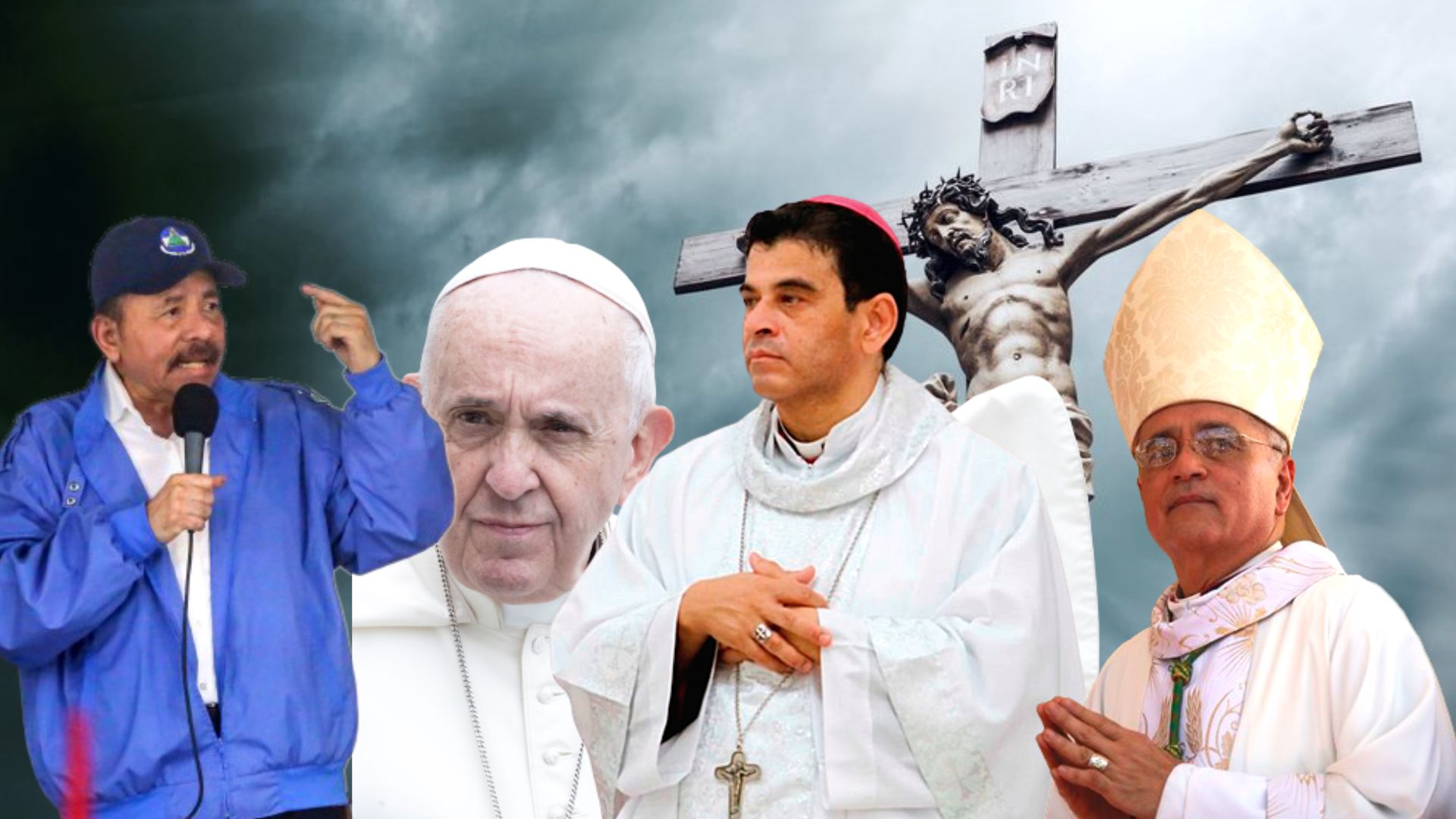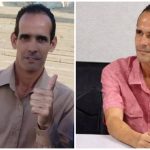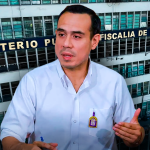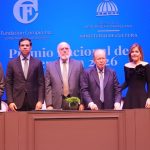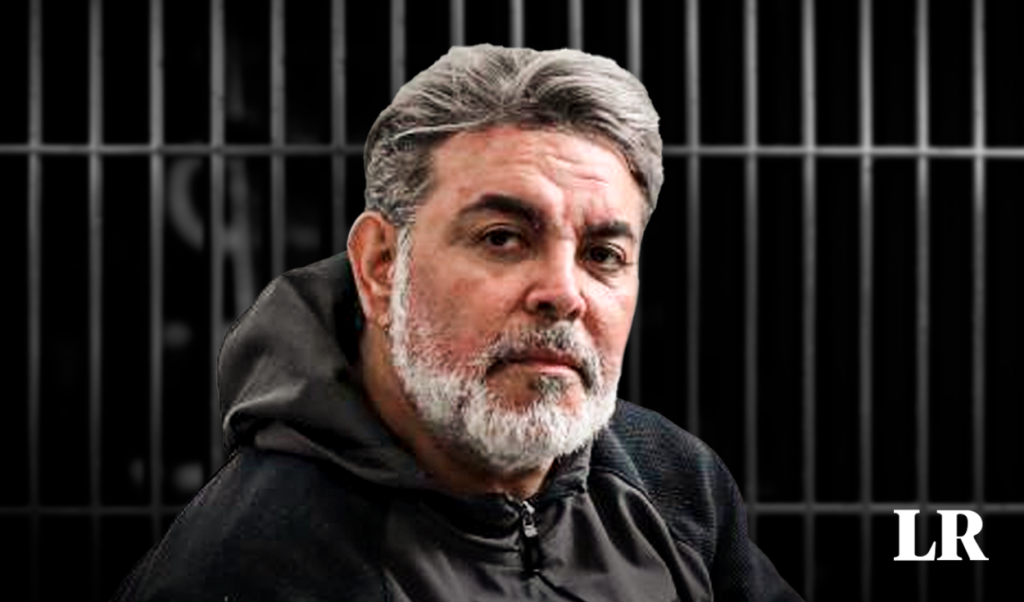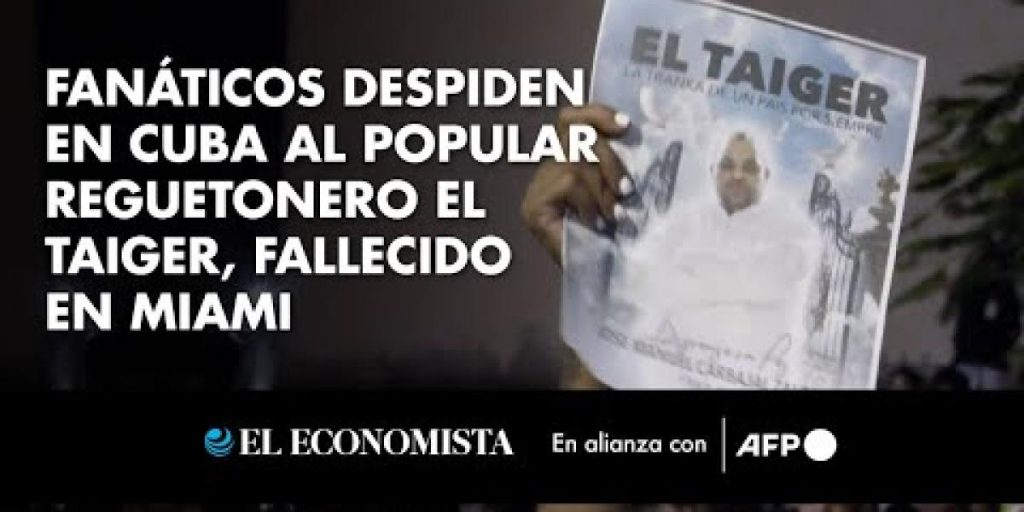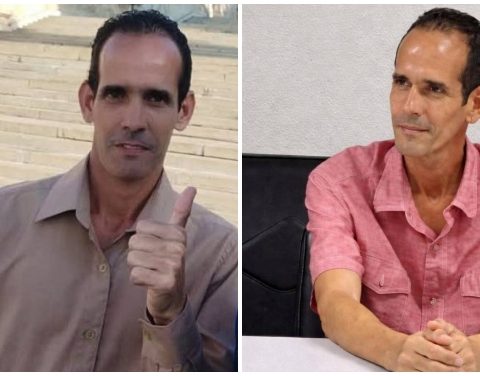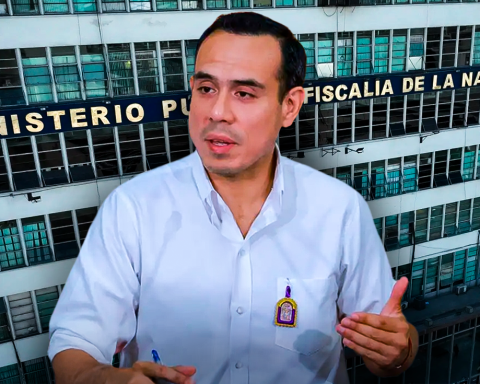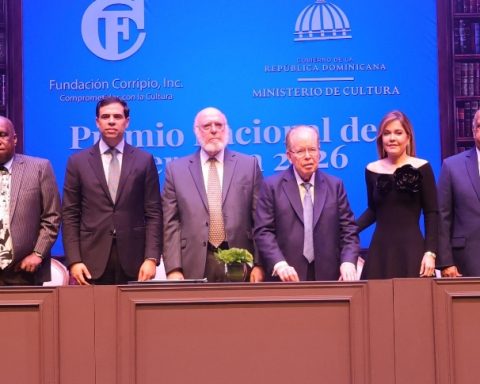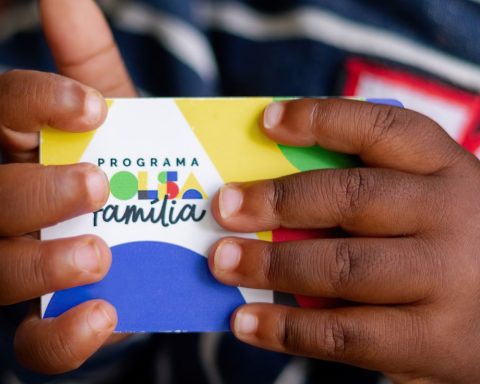Every day, the spokesperson for the regime that governs Nicaragua with a heavy hand, Rosario Murilloinvokes God. In a slow voice and sometimes in an almost pleading tone, she thanks him “for the victories” and declares herself “blessed” and under “heavenly grace.” A strange contradiction, since throughout his speech he also justifies kidnappings, forced disappearances and even the murders of more than 355 opponents.
She declares herself afraid of a God which prohibits killing and causing harm to one’s fellow human beings, but Murillo and her husband have done all this for the love of power. Furthermore, she is the same voice that attacks priests and pastors, against whom she ordered prison and confiscation of property. Rosario Murillo and Daniel Ortega do not miss the opportunity to declare themselves a believing, Catholic couple, but both are accused of the worst persecution of faith that the country has experienced in recent years.
The world not only knows it, it denounces it. On September 28, before the United Nations General Assembly, UN In New York, the Vatican Secretary of State, Cardinal Pietro Parolin, demanded that Nicaragua’s dictatorial couple respect freedom of religion. He said that the Holy See is particularly concerned about “the measures adopted against the personnel and institutions of the Church, which directly affect the sensitive issue of religious freedom.”
Related news: Of the 135 exiled to Guatemala, 13 were lay people who were imprisoned for their relationship with the Catholic Church
The researcher Martha Patricia Molina, one of the most incisive observers of the offensive Ortega actions against the churches, considers for her part that the Nicaraguan dictatorship “intends to completely annihilate the faith in God of the Catholic people to continue the indoctrination project where “The main figures are Daniel Ortega and his consort.”
“The dictatorship has imposed total silence on clerics and religious,” he accuses. “And although they have faithfully fulfilled it, they have remained silent, the persecution has not ceased, but has increased,” he denounced.
“prolonged war”
The Group of Human Rights Experts on Nicaragua (GHREN) recently denounced before the United Nations Human Rights Council the systematic persecution against religious people and faith communities, highlighting violations of the right to freedom of religion, motivated by political issues.
They also consider that in Nicaragua the right to freedom of thought and conscience is violated, which has occurred as a consequence of the closure of universities affiliated with the Catholic Church and evangelical churches.
Related news: Ortega-Murillo dictatorship fears the Catholic Church, that’s why it persecutes it, says exiled priest
The Nicaragua Never Again Human Rights Collective, based in Costa Rica, has identified the closure of at least 35 educational institutions and university associations linked to religious organizations. Ortega and Murillo consider critical thinking and the defense of human rights a threat to their permanence in power.
No freedom of expression and opinion
The GHREN also considers that the Nicaraguan authorities criminalized the right to freedom of expression of some members of the Catholic Church and that they prohibited or limited the dissemination of information by media outlets owned by religious or religiously oriented entities.
They also highlight violations of the right to freedom of association, incitement of discrimination, hostility and violence, as well as threats, harassment and physical attacks on members of the Catholic Church and other religious manifestations.
The Group of Experts documented the arbitrary detention of priests and religious leaders in incommunicado conditions. They reported that they were subjected to judicial processes “behind closed doors” where they were not allowed a defense lawyer of their choice.
Rape and abuse
The voices denouncing the abuses that different religious denominations suffer in Nicaragua have been strongly felt in recent weeks, in parallel events held within the framework of the 57th session of the United Nations, in Geneva.
Human rights organizations and other victims of the Ortega-Murillo regime shared with the international community the violations and abuses against members of the Church in Nicaragua.
On condition of anonymity, a priest exiled from Nicaragua recounted the difficult situation faced by bishops, priests, religious, lay people, and militants of the Catholic Church who have suffered exile, siege, persecution and exile. “Some have suffered imprisonment in inhuman conditions, others have been deprived of their nationality and all their property confiscated,” said the priest.
He added: “it is evident that the persecution of the Catholic Church has a political and not religious motivation, since 2018 the church has openly criticized any repression of civil liberties and violation of human rights in the country, the political crisis in Nicaragua is “It is getting worse with each passing day.”
Repression against the Moravian church
The repression and persecution is not only against the Catholic Church, it is also suffered by evangelicals and even the Moravians of the Caribbean Coast, one of the oldest congregations in that area of Nicaragua.
Fracisco Alvicio, pastor of the Moravian church, also raised his voice in Geneva. He commented that the majority of the Caribbean population belongs to the Moravian Church, which was also affected by the Ortega-Murillo regime by canceling its legal personality.
«It (the Moravian church) has existed since 1849, it has 108,876 active members and 350 thousand collaborators, being the largest in the kingdom of La Mosquitia, the church is part of the worldview of my people and has contributed to the construction of the spirit of resistance that characterizes my people,” said Alvicio.

He stressed that the regime “intends to control all spaces of our lives, including the church.” «Once again we are victims of human rights violations (…) we ask the international community for asylum and refuge for Miskitos who are now fleeing repression, among them the Reverend Héctor William Padilla. (…)”, he denounced.
Related news: Another blow to the Catholic Church, Ortega closes Radio María
The religious man demanded that the attack against his church stop. “We demand that our ancestral beliefs be respected, that we be allowed to return to our lands and that the violation against my people stop,” Alvicio asked.
A persecuted church
That meeting was attended by researcher Martha Patricia Molina, who reported during the session that from 2018 to July 2024, 870 attacks against the Catholic Church and more than 100 incidents against the Evangelical Church have been documented.
«This includes arbitrary closures of non-profit organizations, media, universities and institutes, religious projects and social works, theft of real estate, freezing of private bank accounts, death threats, beatings, defamations and imprisonment of religious and secular,” said Molina.
Molina’s investigations indicate that the regime has confiscated 19 religious buildings, that 260 religious men and women have been forced to live in exile, many denationalized, that 9,688 religious activities have been prohibited, that 14 religious congregations have been expelled from Nicaragua and 22 Catholic media outlets were arbitrarily closed.
Attempted financial drowning
The Nicaragua Never Again Human Rights Collective identifies at least four stages of repression that the Catholic Church has experienced since 2018, when protests against the Ortega-Murillo dictatorship began in Nicaragua.
The last stage dates from February 2023 to the present and is characterized “by the financial drowning and systematic weakening of the Catholic Church as an institution.” “This is manifested through tax persecution, confiscations of assets and freezing of bank accounts.”
They mention that “religious leaders and their parishioners have been severely punished, stripping them of their nationality and forcibly deporting them to the United States and the Vatican or preventing their return to the country.” Freedom of worship has been severely affected, prohibiting religious celebrations that for years have been part of the traditions and idiosyncrasies of Nicaraguans.
«These events represent a serious violation of human rights and a significant erosion of religious freedom in Nicaragua. It is essential that the international community takes concrete measures to address this situation and protect the fundamental rights of all people in the country,” calls the Collective.
The first stage, located between April 2018 and March 2019, “marked the beginning of a break in the relationship between the Catholic Church and the State, which had previously been to a certain extent harmonious.” “The regime positioned the church as an enemy of the people or the State, which legitimized some acts of violence and desecration of temples,” highlights the Collective.
The “most extensive” stage of attacks that the Catholic Church has suffered is between April 2019 – with the exile of Monsignor Silvio Báez – until January 2022.
Related news: Ortega seeks to subdue the Catholic Church with terror with increased arrests of priests, says Calidh
«During this stage, attacks against the Catholic community and those associated with it intensified. The exile of priests and people linked to the Catholic Church marked the beginning of a series of measures aimed at religious dissidents. “Harassment and threats of arrest became common tactics used against Catholic faithful and priests, who were often harassed,” identifies the Collective.
Also highlighted is the “siege of temples in activities commemorating protests or murdered people, closure of the first non-governmental organizations linked to the Catholic Church, selective persecution of objectified priests and physical attacks by third parties or sympathizers of the Sandinista Front on priests” .
Breakdown of relations and arrest of priests
In February 2022, the third stage is marked. “The tension accumulated in previous years unleashed one of the greatest persecutions against the Catholic Church in the history of our country.” During this stage, which culminates in January 2023, “the breakdown of relations between the State and the Vatican representation materialized with the expulsion of the Apostolic Nuncio Monsignor Waldemar Stanislaw Sommertag.”
“In addition, there was a massive closure of organizations and media outlets affiliated with the Catholic Church, which marked a serious deterioration in freedom of expression and association in Nicaragua,” says the Collective.
And the worst would come, “the emergence of a new form of repression: detention, judicialization and sentencing of priests with the participation of the legislative power in opening investigations and the judicial branch, in the judicialization. This situation represents an alarming turn in religious persecution in Nicaragua».
According to data from the Collective, at least 65 religious have been judicially accused in Nicaragua since Ortega and Murillo declared them enemies of their regime.
